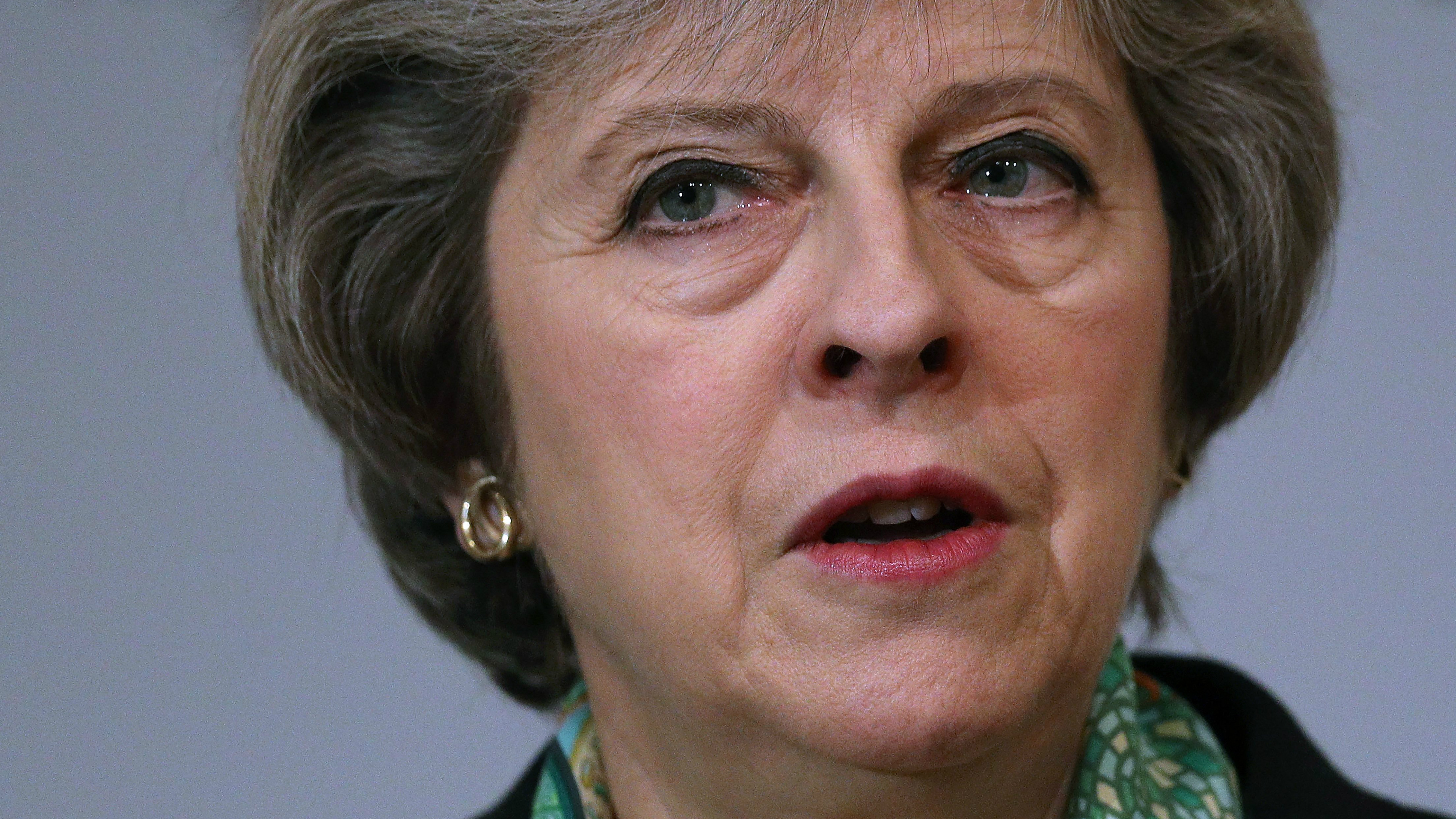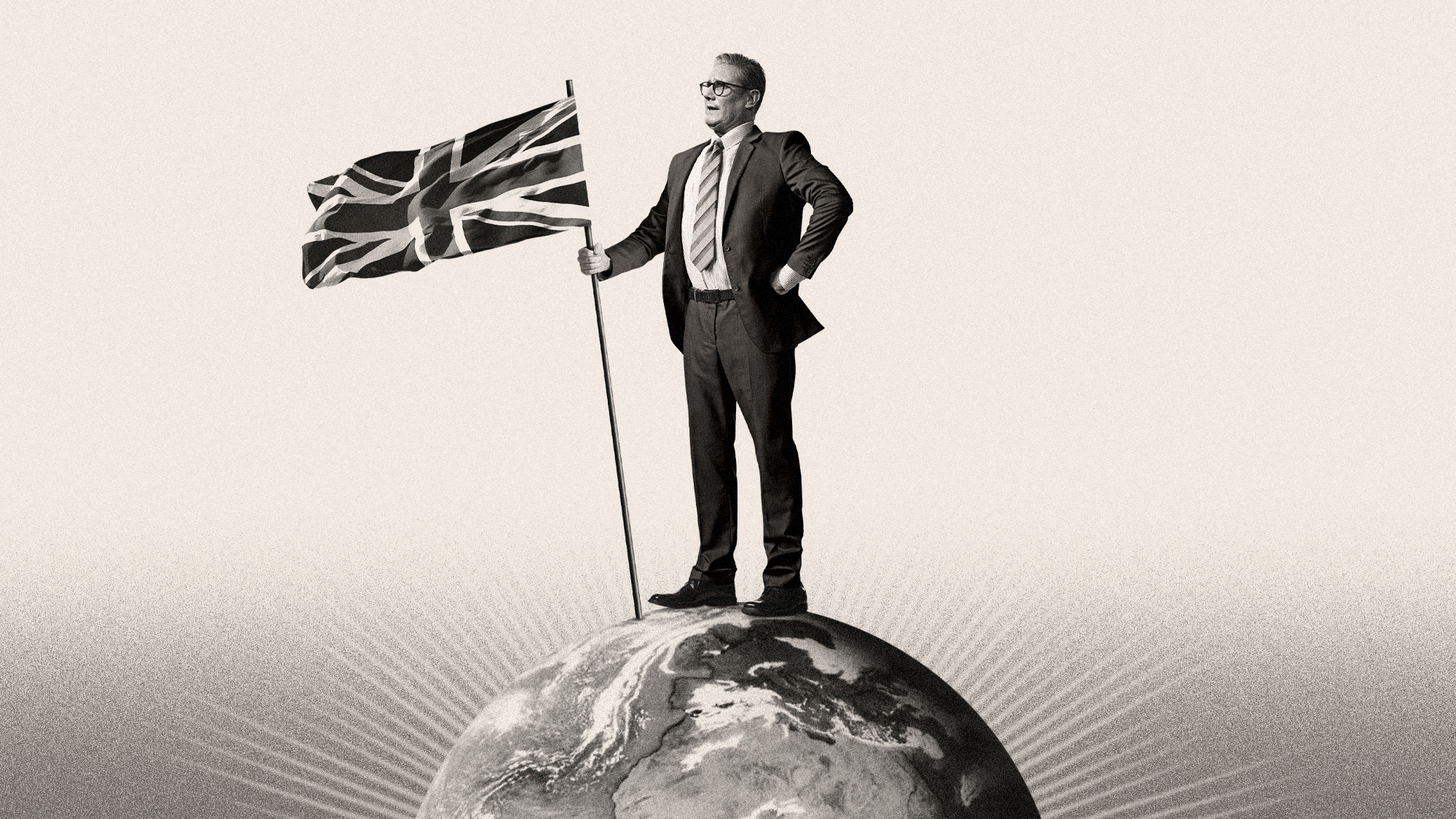Theresa May to back radical overhaul of workers' rights
Matthew Taylor's review to focus on blurred boundary between employees and self-employed

A free daily email with the biggest news stories of the day – and the best features from TheWeek.com
You are now subscribed
Your newsletter sign-up was successful
Theresa May is to back plans for a radical overhaul of workers' rights to better reflect 21st-century employment practices, says The Guardian.
Matthew Taylor, who was appointed by the Prime Minister to lead a review of the gig economy and modern work, said he would be recommending changes to the rights of self-employed workers in his report, which will be published in June.
He added he will highlight the blurring of boundaries between the rights afforded to the self-employed and those classified as employees.
The Week
Escape your echo chamber. Get the facts behind the news, plus analysis from multiple perspectives.

Sign up for The Week's Free Newsletters
From our morning news briefing to a weekly Good News Newsletter, get the best of The Week delivered directly to your inbox.
From our morning news briefing to a weekly Good News Newsletter, get the best of The Week delivered directly to your inbox.
A growing number of companies, particularly in the delivery sector, now use self-employed workers, who are not entitled to the likes of holiday or sick pay.
However, some argue they are not truly self-employed as their work is typically dictated by the firm for whom they work.
In the UK, a company cannot classify anyone as self-employed if they do not take any financial risk or set the terms and hours they work.
Employment law, however, has a middle ground option of "worker", the status accorded to Uber drivers by a tribunal last year, although this still does not bring with it the right to redundancy pay or to claim unfair dismissal, for example.
A free daily email with the biggest news stories of the day – and the best features from TheWeek.com
Taylor said: "We don't accept the idea of kind of wage slavery, the idea of people at work having no choice, no voice, no capacity to influence what's going on around them."
A number of high-profile legal cases in the past few months have hinged on the balance between employers' control and the rights and entitlements offered to those they employ.
In October, Uber lost a landmark employment tribunal case brought by drivers "who said the stringent conditions placed on their work by the company meant they were… employees who were entitled to minimum wage and sick pay", says The Guardian.
There could also be tax implications from the review, after this month's Budget saw Philip Hammond attempt to increase national insurance contributions for self-employed workers.
People who work for themselves currently pay three per cent less national insurance than those directly employed, despite having the same pension rights following reforms in recent years.
-
 Heated Rivalry, Bridgerton and why sex still sells on TV
Heated Rivalry, Bridgerton and why sex still sells on TVTalking Point Gen Z – often stereotyped as prudish and puritanical – are attracted to authenticity
-
 Sean Bean brings ‘charisma’ and warmth to Get Birding
Sean Bean brings ‘charisma’ and warmth to Get BirdingThe Week Recommends Surprise new host of RSPB’s birdwatching podcast is a hit
-
 Film reviews: ‘Send Help’ and ‘Private Life’
Film reviews: ‘Send Help’ and ‘Private Life’Feature An office doormat is stranded alone with her awful boss and a frazzled therapist turns amateur murder investigator
-
 The high street: Britain’s next political battleground?
The high street: Britain’s next political battleground?In the Spotlight Mass closure of shops and influx of organised crime are fuelling voter anger, and offer an opening for Reform UK
-
 Is a Reform-Tory pact becoming more likely?
Is a Reform-Tory pact becoming more likely?Today’s Big Question Nigel Farage’s party is ahead in the polls but still falls well short of a Commons majority, while Conservatives are still losing MPs to Reform
-
 Taking the low road: why the SNP is still standing strong
Taking the low road: why the SNP is still standing strongTalking Point Party is on track for a fifth consecutive victory in May’s Holyrood election, despite controversies and plummeting support
-
 What difference will the 'historic' UK-Germany treaty make?
What difference will the 'historic' UK-Germany treaty make?Today's Big Question Europe's two biggest economies sign first treaty since WWII, underscoring 'triangle alliance' with France amid growing Russian threat and US distance
-
 Is the G7 still relevant?
Is the G7 still relevant?Talking Point Donald Trump's early departure cast a shadow over this week's meeting of the world's major democracies
-
 Angela Rayner: Labour's next leader?
Angela Rayner: Labour's next leader?Today's Big Question A leaked memo has sparked speculation that the deputy PM is positioning herself as the left-of-centre alternative to Keir Starmer
-
 Is Starmer's plan to send migrants overseas Rwanda 2.0?
Is Starmer's plan to send migrants overseas Rwanda 2.0?Today's Big Question Failed asylum seekers could be removed to Balkan nations under new government plans
-
 Has Starmer put Britain back on the world stage?
Has Starmer put Britain back on the world stage?Talking Point UK takes leading role in Europe on Ukraine and Starmer praised as credible 'bridge' with the US under Trump